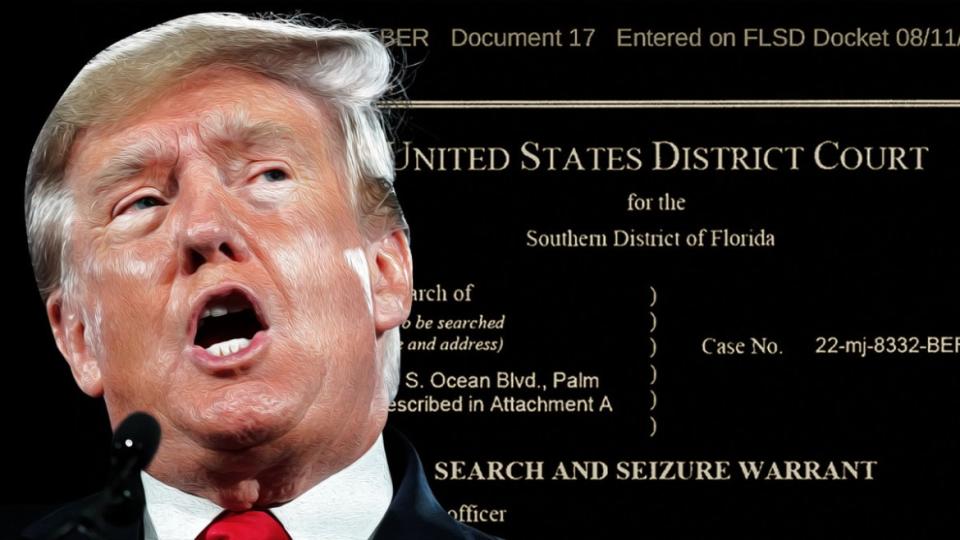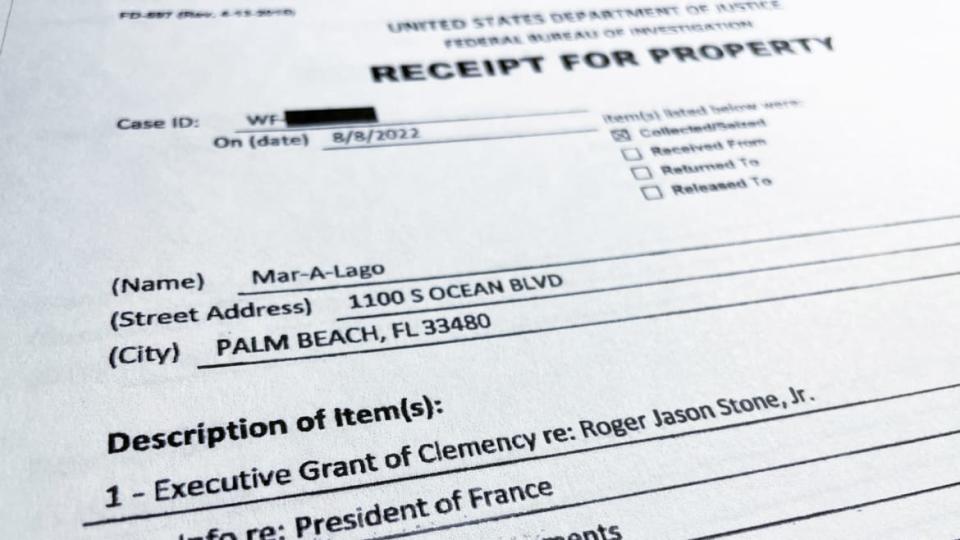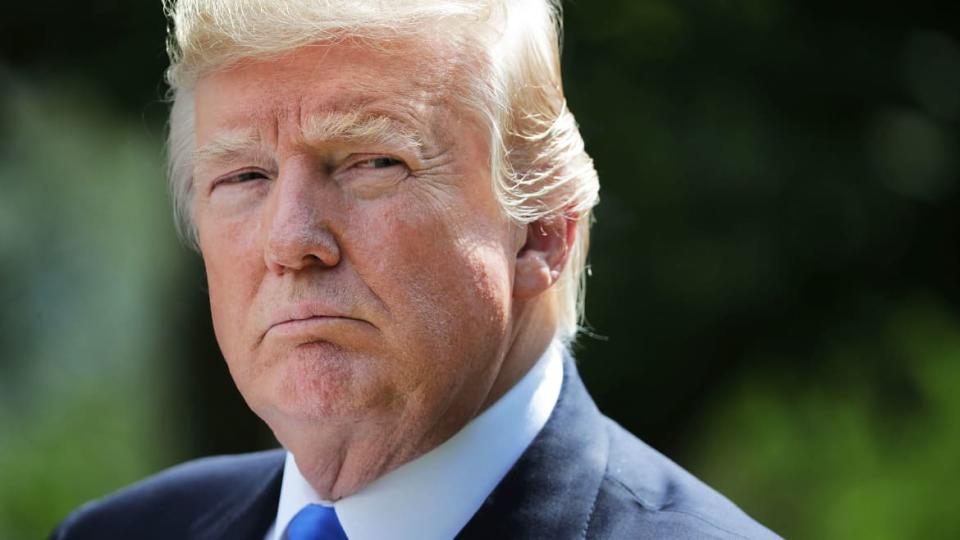Trump’s In La-La Land When It Comes to Executive Privilege

Former President Donald Trump says the Department of Justice must “immediately” return the documents seized from his office and residence at Mar-A-Lago because of alleged violations of “attorney-client” material and “executive” privileged material.
This is, to put it plainly, completely bogus.
Once Trump ceased being president, all executive privilege passed from him to President Joe Biden. Only the sitting president can assert executive privilege, and Biden has made it clear that he will not lift a finger to shield Trump (the “FPOTUS”) from prosecution by the Department of Justice.
A Trump Indictment Over Mishandling Classified Documents Is Now a Very Real Possibility
Despite FPOTUS’ claim that the seized documents are covered by attorney-client privilege, no legal statute requires that they be “immediately returned” to him. Rather, his claim starts a lengthy and well-established procedure where the court (in this case, the Southern District of Florida) makes the ultimate determination of the privileged status of any documents.
How does the attorney-client privilege review process work?
When documents are seized via search warrant, and some of those documents may be covered by attorney-client privilege, the Department of Justice (DOJ) uses a device called a “taint team.” But that’s only the beginning of a six-step process.
1. The DOJ assembles a “taint team” consisting of FBI agents and AUSAs who are not associated with the investigation at issue, to make certain that no privileged documents are provided to the people who actually will prosecute the case.
2. The taint team reviews all of the documents and separates them into three categories: (A) Clearly privileged, (B) Arguably privileged, (C) Clearly not privileged.
3. Trump’s attorneys will have the opportunity to review the documents seized and the categories into which they have been placed before any further action is taken. They may contend that documents in categories B or C are covered by privilege. Once privilege is asserted, the documents will have to be reviewed by the court that is supervising the investigation.

4. Clearly privileged documents are returned to FPOTUS and clearly non-privileged documents are provided to the investigative team.
5. Documents whose privileged status is in dispute are provided to a District Court judge in the Southern District of Florida for in camera review (meaning the judge reads the documents and makes a determination) on a document-by-document basis. Each side can submit written arguments (under seal) to the court regarding why each particular document should or should not be considered privileged.
6. The court rules on each particular document. Privileged documents are returned to FPOTUS. Not-privileged documents are provided to the investigative team.
The full process can take weeks or months, depending on the number of disputed documents.
Does The District Court Judge Have To Review The Documents Personally?
The supervising judge has the responsibility to rule on the privileged status of each document, but the judge can (with the agreement of the parties) have a paid arbitrator perform an initial review, including receiving arguments from FPOTUS and the DOJ—with either side having the ability to appeal rulings to the District Court judge.
Isn’t anything that FPOTUS sent to his attorneys “attorney-client” privileged?
No. A document does not become privileged just because it was sent to an attorney. For example, if FPOTUS had taken the recipe for making Toll House cookies from the White House to Mar-A-Lago and then sent the recipe to his attorneys, with a copy remaining at Mar-A-Lago, the recipe would not be privileged even though it had been sent to the attorneys.
On the other hand, if FPOTUS sent a cover letter/note to his attorneys asking questions about the recipe, that cover note would be privileged, even though the attached recipe would not be privileged.
Are there any other important limitations on privilege?
Yes. One of the most important limitations on privilege is the “crime/fraud” exception, which provides that communications that are in preparation to commit a future crime are not privileged.
To take an example from the movie Goodfellas, if the mobster Henry Hill had called an attorney and said, “Tommy just killed Billy Batts. What do we do now?”—that question and the answer (“Remain silent”) would be privileged. But, if the attorney answered, “You should take the corpse upstate and bury it someplace that no one will ever find it,” that would not be privileged, because it was part of new crimes (covering up the murder and illegally disposing of a body).

The crime/fraud exception to privilege may be important here, because an attorney apparently certified to the DOJ earlier this summer that all of the classified materials that FPOTUS had taken to Mar-A-Lago had been provided to the DOJ. That representation was apparently false, given the many Secret, Top Secret, and Top Secret/Sensitive Compartmentalized Information (TS/SCI) documents that were seized from Mar-A-Lago. The communications between FPOTUS and his attorneys that led to the false certification by the attorney very possibly might be held not to be privileged.
Does the classified status of the documents matter for the privilege review?
Yes, FPOTUS likely will not be allowed to see the classified documents that were seized from Mar-A-Lago.
Even if his claim to have declassified the documents is accurate (a question for another day), it’s virtually certain that the Biden administration immediately restored the classified status of the documents after they were seized. President Biden revoked FPOTUS’s security clearance immediately after he took office, which means FPOTUS cannot legally look at any classified document.
Can the Feds Actually Prove Five Proud Boys Committed Sedition?
In the event that FPOTUS is eventually indicted, the court may insist that the DOJ provide him with access to the documents under a Confidentiality Order, but that is highly unlikely to take place at the privilege review stage.
In fact, FPOTUS will have to hire attorneys who have (or can obtain) high-level security clearances in order to have them review the documents that were seized from Mar-A-Lago. It is highly unlikely that any of the attorneys who have appeared thus far for FPOTUS (and accused the FBI of “planting” documents) hold or would be able to obtain the necessary security clearance.
What else is likely going on?
Separate from the privilege review, it’s virtually certain that the NSA and other intelligence agencies are investigating the forensic evidence (such as fingerprints) from the Top Secret and TS/SCI documents to determine who touched the documents. This investigation will not be delayed by the privilege review, because it will not be a part of any criminal prosecution of FPOTUS.
The bottom line is this: The fact that former President Donald Trump has demanded the return of the documents taken from Mar-A-Lago does not mean that the DOJ will comply with his demand. Rather, it is highly likely that the vast bulk (or all) of the seized documents will be held not to be privileged and available to be used to prosecute the former president.
Get the Daily Beast's biggest scoops and scandals delivered right to your inbox. Sign up now.
Stay informed and gain unlimited access to the Daily Beast's unmatched reporting. Subscribe now.

 money
money 